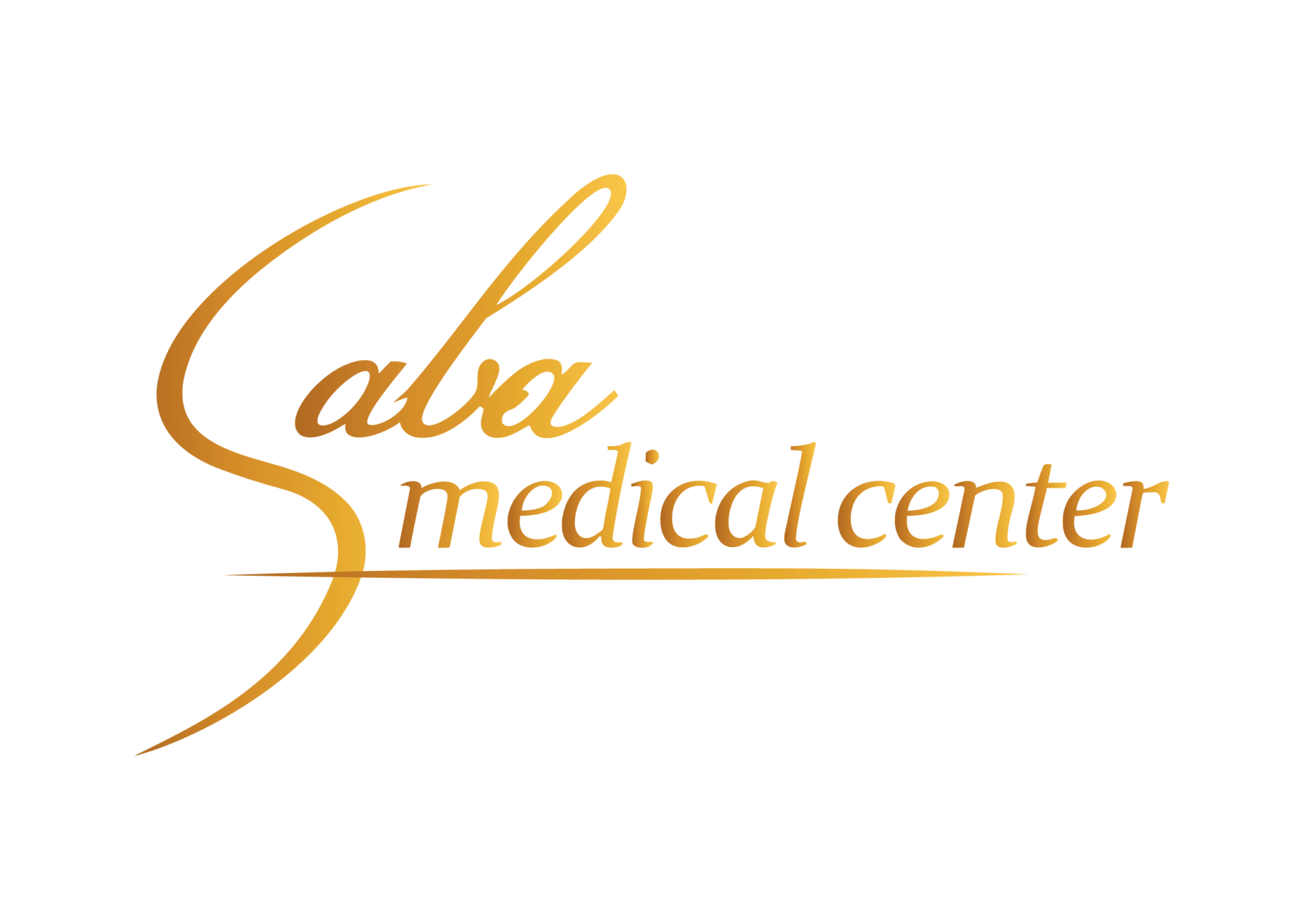The journey toward motherhood begins with a simple yet profound question: “Could I be pregnant?” For many women, this moment marks the start of an extraordinary adventure filled with hope, anticipation, and perhaps a touch of uncertainty. Understanding the early signs of pregnancy can provide clarity during this crucial time and help you take the next steps toward ensuring a healthy pregnancy journey.
At Dr. Saba Medical Center, we understand that recognizing early pregnancy symptoms can be both exciting and overwhelming. Our experienced team, led by Dr. Saba Ziad, specializes in supporting women through every stage of their reproductive health journey, from the earliest signs of pregnancy through delivery and beyond.
Understanding Early Pregnancy: What Happens in Your Body
When conception occurs, your body begins an incredible transformation within the first few weeks. These changes are triggered by pregnancy hormones, particularly human chorionic gonadotropin (hCG), which your body starts producing shortly after a fertilized egg implants in the uterine wall. This typically happens as early as one to two weeks after conception, though many women may not notice symptoms until later.
The early stages of pregnancy bring significant hormonal changes in early pregnancy that affect virtually every system in your body. These changes are designed to support the developing embryo and prepare your body for the months ahead. Understanding what occurs during early pregnancy helps explain why certain symptoms appear and why they may vary from woman to woman.
The Most Common Early Signs of Pregnancy
1. Missed Period: Often the First Sign of Pregnancy
For women with regular menstrual cycles, a missed period is typically one of the first signs of pregnancy. When you miss your period, particularly if your cycles are usually predictable, it may be pregnant and time to consider taking a pregnancy test. However, it’s important to note that a missed period doesn’t always confirm pregnancy, as stress, illness, weight changes, or hormonal imbalances can also cause menstrual irregularities.
The timing of when you miss a period depends on your cycle length and when conception occurred. Most women experience their first missed period approximately two to four weeks after conception, making this a reliable sign of pregnancy for those with regular cycles.
2. Morning Sickness and Nausea
Morning sickness is perhaps the most well-known symptom of early pregnancy, though the name can be misleading. Nausea during pregnancy can occur at any time of day and affects approximately 70-80% of pregnant women. This common early pregnancy symptom typically begins around the sixth week of pregnancy but can start as early as one week after a missed period.
The intensity of morning sickness varies significantly among women. Some experience mild nausea, while others face severe symptoms that interfere with daily activities. The exact cause isn’t fully understood, but it’s believed to result from the rapid increase in pregnancy hormones, particularly hCG and estrogen.
3. Breast Changes and Tenderness
Changes in early pregnancy often include noticeable breast modifications. You may experience breast tenderness, swelling, or heaviness as early as one to two weeks after conception. These changes occur due to pregnancy that may prepare your body for breastfeeding. Your breasts might feel fuller, and the areolas (the area around the nipples) may darken and become more sensitive.
Many women describe this sensation as similar to the breast tenderness experienced before menstruation, but often more pronounced. This common symptom of early pregnancy is caused by increased blood flow and hormonal changes preparing the mammary glands for milk production.
4. Fatigue and Exhaustion
Extreme tiredness is another common early pregnancy symptom that many women experience during the first trimester of pregnancy. This fatigue goes beyond typical tiredness and can be overwhelming, making simple daily tasks feel exhausting. The fatigue is primarily caused by rapidly rising progesterone levels, which can have a sedating effect.
This symptom of early pregnancy often appears within the first few weeks after conception and may continue throughout the first trimester. Many women find that they need more sleep than usual and may feel drowsy during the day, even after a full night’s rest.
5. Implantation Bleeding and Cramping
Some women experience light bleeding or spotting, known as implantation bleeding, which occurs when the fertilized egg attaches to the uterine lining. This bleeding during pregnancy is typically lighter than a regular menstrual period and may appear as pink or brown spotting. It usually occurs about 10-14 days after conception, around the time when the next period would be due.
Mild cramping may accompany implantation bleeding. These cramps are generally less intense than menstrual cramps and are caused by the implantation process. While implantation bleeding is normal, any bleeding during pregnancy should be discussed with your healthcare provider to rule out complications.
Additional Early Pregnancy Symptoms to Watch For
Frequent Urination
As early as six to eight weeks into pregnancy, you may notice an increased need to urinate. This happens because pregnancy hormones increase blood flow to the kidneys, causing them to process more fluid. Additionally, as the uterus grows, it puts pressure on the bladder, contributing to more frequent bathroom trips.
Food Aversions and Cravings
Changes in taste and smell sensitivity are common during early pregnancy. You might develop strong aversions to foods you previously enjoyed or crave unusual food combinations. These changes are thought to be related to hormonal fluctuations and may serve as a protective mechanism for the developing baby.
Mood Changes and Emotional Sensitivity
The surge of pregnancy hormones can affect your emotional state, leading to mood swings, increased sensitivity, or feeling more emotional than usual. These changes are normal and typically stabilize as hormone levels adjust throughout pregnancy.
Heightened Sense of Smell
Many women report an enhanced sense of smell during early pregnancy, which may contribute to nausea and food aversions. This heightened sensitivity is believed to be caused by increased estrogen levels and may persist throughout the first trimester.
When and How to Take a Pregnancy Test
Home Pregnancy Tests: Timing and Accuracy
If you think you may be pregnant based on early symptoms, taking a home pregnancy test is often the first step toward confirmation. Most at-home pregnancy tests are designed to detect hCG in urine and can provide accurate results as early as the first day of a missed period.
For the most reliable results when you take a pregnancy test, consider these guidelines:
- Wait until after a missed period: Testing too early may result in a false negative
- Use first-morning urine: hCG concentrations are highest in the morning
- Follow instructions carefully: Each test has specific timing requirements
- Consider retesting: If you get a negative result but still suspect pregnancy, wait a few days and test again
Blood Tests for Pregnancy Confirmation
While home pregnancy tests are convenient and generally accurate, a blood test performed by a healthcare provider can detect pregnancy earlier and more definitively. Blood tests can detect hCG levels as early as 6-8 days after ovulation, before a missed period occurs.
There are two types of blood pregnancy tests:
- Qualitative hCG test: Simply confirms whether hCG is present
- Quantitative hCG test: Measures the exact amount of hCG, which can help determine how far along the pregnancy is
Understanding Different Pregnancy Experiences
Every Pregnancy is Unique
It’s important to remember that pregnancy differently affects each woman. Some women experience multiple early pregnancy symptoms, while others may have very few or none at all. The absence of symptoms doesn’t necessarily indicate a problem with the pregnancy. Some women experience no symptoms during their first few weeks and only realize they’re pregnant when they miss their period.
Factors That Influence Symptom Severity
Several factors can influence how you experience early pregnancy symptoms:
- Hormone sensitivity: Some women are more sensitive to hormonal changes
- Previous pregnancies: Symptoms may differ between first and subsequent pregnancies
- Overall health: Your general health status can affect symptom severity
- Age: Maternal age may influence symptom intensity
- Lifestyle factors: Stress, diet, and exercise can impact how symptoms manifest
When Symptoms May Indicate Concern
While many pregnancy symptoms are normal, certain signs warrant immediate medical attention:
- Heavy bleeding: More than light spotting could indicate a problem
- Severe cramping: Intense pain may signal an ectopic pregnancy or other complications
- Persistent vomiting: Severe morning sickness that prevents keeping food down requires medical evaluation
- Fever: Any fever during pregnancy should be evaluated by a healthcare provider
Early Prenatal Care: Your Next Steps
The Importance of Early Medical Consultation
Once you confirm your pregnancy, scheduling your first prenatal appointment is crucial for ensuring a healthy pregnancy journey. Early prenatal care allows your healthcare provider to:
- Confirm the pregnancy and estimate your due date
- Assess your overall health and identify any risk factors
- Begin important prenatal screening and testing
- Provide guidance on nutrition, supplements, and lifestyle changes
- Address any concerns or questions you may have
What to Expect During Your First Prenatal Visit
Your first prenatal appointment typically occurs around 8-10 weeks of pregnancy, though it may be scheduled earlier if you have specific health concerns or risk factors. During this comprehensive visit, your healthcare provider will:
- Review your medical history: Including previous pregnancies, medical conditions, and family history
- Perform a physical examination: Including a pelvic exam and breast examination
- Order initial tests: Blood work, urine tests, and possibly an ultrasound
- Discuss lifestyle factors: Nutrition, exercise, medications, and environmental exposures
- Establish a care plan: Including the schedule for future prenatal visits
Supporting Your Early Pregnancy Journey
Nutrition and Lifestyle Recommendations
During the early stages of pregnancy, maintaining good nutrition and healthy habits is essential for both maternal and fetal health. Key recommendations include:
Prenatal Vitamins: Start taking a prenatal vitamin containing folic acid, ideally before conception or as soon as you confirm pregnancy. Folic acid helps prevent neural tube defects and is crucial during the first trimester.
Balanced Nutrition: Focus on eating a variety of nutrient-dense foods, including:
- Lean proteins for fetal growth and development
- Dairy products for calcium and protein
- Fruits and vegetables for vitamins and fiber
- Whole grains for energy and B vitamins
Hydration: Increase your fluid intake to support increased blood volume and help prevent constipation, a common pregnancy symptom.
Avoid Harmful Substances: Eliminate alcohol, tobacco, and recreational drugs, which can harm fetal development. Limit caffeine intake and avoid certain fish high in mercury.
Managing Early Pregnancy Symptoms
While you navigate the first trimester of pregnancy, several strategies can help manage common symptoms:
For Morning Sickness:
- Eat small, frequent meals to avoid an empty stomach
- Keep crackers or dry toast by your bedside for morning nausea
- Try ginger tea or ginger supplements (consult your provider first)
- Avoid strong odors that trigger nausea
For Fatigue:
- Prioritize sleep and rest when possible
- Take short naps during the day if needed
- Maintain light exercise as approved by your healthcare provider
- Ask for help with daily tasks
For Breast Tenderness:
- Wear a well-fitting, supportive bra
- Consider sleeping in a comfortable sports bra
- Apply warm or cool compresses as needed
Expert Care at Dr. Saba Medical Center
Comprehensive Obstetric Services
At Dr. Saba Medical Center, we provide comprehensive obstetric care from the earliest stages of pregnancy through delivery and beyond. Our team understands that each pregnancy journey is unique, and we tailor our care to meet your individual needs and circumstances.
Dr. Saba Ziad brings over 30 years of experience in obstetrics and gynecology, with expertise in managing both routine and high-risk pregnancies. Our services include:
- Early pregnancy confirmation and dating
- Comprehensive prenatal care throughout all stages of pregnancy
- Advanced diagnostic testing and monitoring
- Management of pregnancy complications
- Delivery services including both vaginal and cesarean delivery
- Postpartum care and support
Advanced Diagnostic Capabilities
Our state-of-the-art facility in Sharjah offers advanced diagnostic services to ensure the health and well-being of both mother and baby. These include:
- Cardiotocography (CTG): For fetal monitoring during pregnancy
- Ultrasound imaging: To track fetal development and detect any abnormalities
- Laboratory services: For comprehensive prenatal screening and monitoring
- Specialized testing: For high-risk pregnancies or specific concerns
Personalized Care Approach
We believe that effective prenatal care goes beyond medical monitoring. Our approach includes:
- Educational support: Helping you understand what to expect during pregnancy
- Emotional support: Addressing concerns and anxieties about pregnancy and childbirth
- Lifestyle guidance: Providing practical advice for maintaining health during pregnancy
- Family involvement: Encouraging partner and family participation in the pregnancy journey
Preparing for the Months Ahead
Understanding Pregnancy Trimesters
Pregnancy is typically divided into three trimesters, each bringing unique changes and developments:
First Trimester (Weeks 1-12):
- Major organ development occurs
- Most early pregnancy symptoms are prominent
- Risk of miscarriage is highest but decreases significantly after week 12
- First prenatal appointments and screening tests occur
Second Trimester (Weeks 13-26):
- Often called the “golden period” of pregnancy
- Energy levels typically improve
- Fetal movements become noticeable
- Anatomy scans reveal fetal development details
Third Trimester (Weeks 27-40):
- Rapid fetal growth and weight gain
- Increased frequency of prenatal visits
- Preparation for labor and delivery
- Final preparations for baby’s arrival
Building Your Support Network
Pregnancy can bring both joy and challenges, making a strong support network essential. Consider:
- Partner involvement: Include your partner in appointments and decision-making
- Family support: Lean on family members for emotional and practical support
- Healthcare team: Develop a trusting relationship with your prenatal care providers
- Peer support: Connect with other expectant mothers through classes or support groups
Conclusion: Embracing Your Pregnancy Journey
Recognizing the early signs of pregnancy marks the beginning of an incredible journey toward motherhood. While the experience of pregnancy differently affects each woman, understanding common symptoms and knowing when to seek medical care can help you navigate this transformative time with confidence and peace of mind.
The early symptoms of pregnancy serve as your body’s way of announcing the remarkable changes taking place within. From the first missed period to the subtle changes in your breasts, from morning sickness to fatigue, each sign represents your body’s adaptation to nurturing new life.
Remember that pregnancy symptoms can vary significantly from woman to woman and even from pregnancy to pregnancy. Some women experience pronounced symptoms early on, while others may have minimal symptoms throughout their first trimester. Both experiences are normal, and the presence or absence of symptoms doesn’t necessarily indicate the health of your pregnancy.
At Dr. Saba Medical Center, we’re committed to supporting you through every step of your pregnancy journey. Our comprehensive obstetrics and gynecology services are designed to provide you with the expert care, guidance, and support you need to ensure a healthy pregnancy and safe delivery.
Whether you’re experiencing your first signs of pregnancy or need ongoing prenatal care, Dr. Saba Ziad and our dedicated team are here to provide compassionate, expert care tailored to your unique needs. We understand that pregnancy is not just a medical condition but a profound life experience that deserves personalized attention and care.
If you suspect you may be pregnant or have confirmed your pregnancy, we encourage you to schedule an appointment with our team. Early prenatal care is one of the best investments you can make in your health and your baby’s future. Contact Dr. Saba Medical Center today to begin your pregnancy journey with the expert care and support you deserve.
Your journey toward motherhood is unique and precious. Let us help you navigate it with confidence, knowledge, and the highest quality medical care available in Sharjah.




